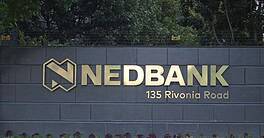The rattled corporation faces a rocky road through a wide-ranging restructuring, but some analysts see a more competitive company emerging.
Century-old global mining-and-metals conglomerate Anglo American plc has been on a roller coaster since the end of May, when it dramatically cut off merger talks with rival BHP and instead announced a sweeping restructure of its portfolio.
Many analysts greeted the plan with skepticism. UBS downgraded London-based Anglo American from Buy to Neutral, citing the restructuring scenario and the hurdles to getting it done by the end of 2025, as management has pledged to do, and the German private bank Berenberg affirmed a Sell rating. In the two months following the announcements, Anglo’s stock price fell 18%.
The auguries worsened at the end of June, when a fire caused the shutdown of Anglo’s Grosvenor coal mine in Australia. New York-based investment bank Jefferies attributed 30% of the value of Anglo’s steelmaking coal business to the Grosvenor mine; its coal operations are one of the assets the company plans to sell as part of the restructuring. Production is not expected to resume until next year.
“Anglo’s main problem this reporting period will be with the coal operations and how it will sell a burning coal mine,” quipped Ian Woodley, portfolio manager at Old Mutual.
Three weeks later, Anglo released its latest results, and the bad news seemed to pile up further. The company took a $1.6 billion impairment based on its decision to slow the development of Woodsmith, its promising venture into organic fertilizer production in the UK. The decision, which was intended to help Anglo focus on its restructuring, swung the company from a net profit of $1.26 billion in the first half of 2023 to a $672 million loss in the first half of this year.
“Anglo’s valuation upside no longer looks compelling on a standalone basis,” JP Morgan’s equity research team concluded, suggesting it may still be a takeover target.
The restructuring itself is a complicated affair. Aside from selling off its coal operations and executing various cost-control measures, Anglo aims to demerge Anglo American Platinum (Amplats), put its nickel mining operations on mothballs for possible divestment, and divest or demerge its fabled DeBeers diamond unit, which will move Anglo out of the diamond business for the first time in almost 100 years. The end-product, chair Duncan Wandblad forecasts, will be a leaner, more linear company, laser-focused on copper and iron ore production, which are expected to benefit from the shift to green energy, and last year accounted for 70%-plus of Anglo’s EBIDTA.
Should the plan succeed, Anglo will be “a higher quality company,” says Morningstar equity analyst Jon Mills, “as it will be less leveraged to changes in commodity prices, led by its high-quality, low-cost, long-life copper mines, including 60%-owned Quellaveco in Peru and 44%-owned Collahausi in Chile.”
Despite the difficulties, such as regulatory approvals needed in South Africa and Botswana, Amplats having to renegotiate supplier contracts and funding lines, and De Beers struggling with a downturn in the diamond market, some analysts think Anglo can pull it off.
“The plan is viable,” says Dawid Heyl, portfolio manager at Ninety-One, a large Anglo shareholder, “and while the execution risk is real, they’ve given themselves a good amount of time to get it done.” Anglo’s stock price is still trading well above the levels it reached before BHP’s bid emerged in April, he notes, “so the market is giving them the benefit of the doubt.”
Anglo reported a modest first step in its restructuring in late July, when it finalized an agreement to sell two royalties to Taurus Funds Management for $195 million: an iron ore royalty owned by De Beers related to an Australian iron project, and a gold and copper royalty related to a project in northern Chile.
“The main risks,” says Mills, “are that it takes longer than intended, and that Anglo accepts bids for its assets that are lower than they should be as it tries to meet its target completion date while minimizing the risk of BHP returning or other suitors emerging.”
But Radoslaw Beker, director at Fitch Ratings, argues that the prices Anglo expects to reap from the assorted divestments and demergers are not overly optimistic: “If the market environment remains stable through the next year, we don’t see problems in getting their numbers. Based on the company’s announcement, and the justification for it, we think it’s achievable.”
Should it succeed, Anglo’s huge restructuring will cap a long-term trend in the mining-and-metals industry away from the diversified model that has been the company’s hallmark for more than a century.
“A diversified model was an advantage at one point,” Heyl notes, “but today, you don’t get rewarded for that, which is why Anglo has been trading at a deeper discount than other miners.”
Wanblad’s vision for the company “shows a real focus on metals, longer term,” says Beker, “and this is the trend that miners want to go in.”




